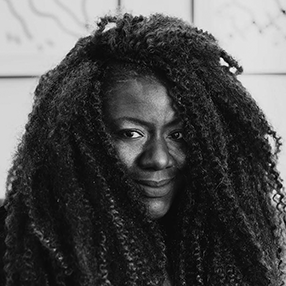Kin: First Responders
On August 2, 2010, siblings and cousins Takeitha Warner, 13; JaMarcus Warner, 14; JaTavious Warner, 17; Litrelle Stewart, 18; LaDarius Stewart, 17; and Latevin Stewart, 15, drowned in the Red River in Shreveport, Louisiana in attempt to save DeKendrix Warner, 15, who was rescued.
One of they own was down in the belly of the river, so The Six dove and flew, neither flippered nor winged, as if air could hold them, as if riverwater was sweet.
The children believed in miracles, believed they was miracles, believed life was not life without they people.
Somebody said they was searching for stars but looked down into them waves. The stars they perceived was brother, sister, cousin, each eye shining with rivermud studded with gemstone, each mouth open and gleaming with tooth, gold, child-holler.
So, they did what humans do when they fall in love: fall. Flung they bodies in full panic, full surrender, one after another after another after another after another, one behind the other, into riverwater—We blood in life, blood in death, ain’t we, Blood?—drowned as one sound.
Water was neither translucent nor transparent, which means not one could read their futures, which were dying as they dove, dying as their limbs did not heed the love-command of they individual hearts to stroke and live, stroke and live, but stroke they did, stroke they did.
Ingested riverwater
like shine—mud, sediment, sludge—
they blues turned mouth,
part holy, part tomb:
Kin, when you go, I go.
We bout to die soon.
Copyright © 2024 by Tameka Cage Conley. Originally published in Poem-a-Day on August 15, 2024, by the Academy of American Poets.
“I was at the Vermont Studio Center in 2010 when I learned of the drowning deaths of six, young African American cousins and siblings in my hometown, Shreveport, Louisiana. It’s taken years since then to craft poetry to the horror of their deaths. What does it mean to be willing to die for love? Or to die screaming for rescue, as they all did? How do the drownings speak back and to the transatlantic slave trade? I wanted to write a poem that explored these tensions and that would honor the young, Black lives and the supernatural world along with them.”
—Tameka Cage Conley

